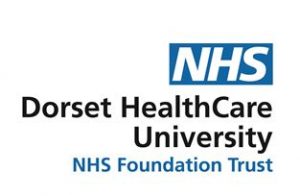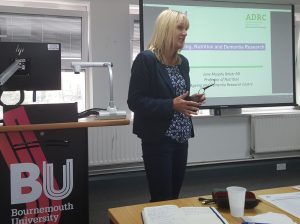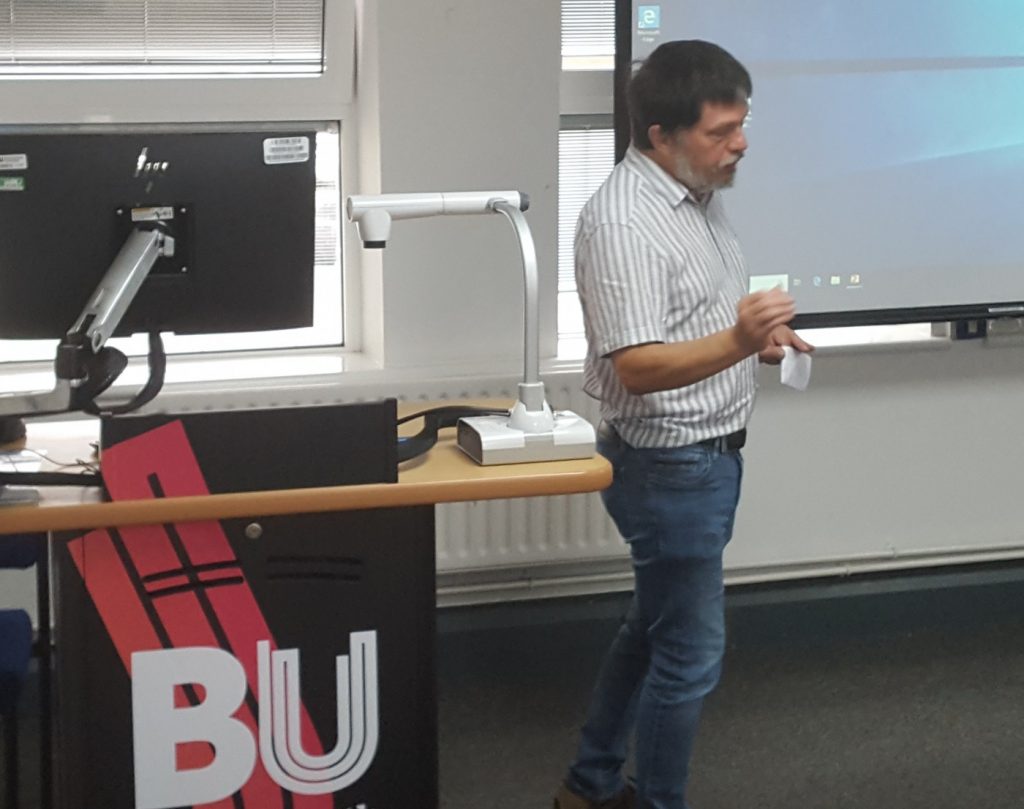 Yesterday Dorset Healthcare University NHS Foundation Trust held an away day for its clinical staff to learn more about health research. The event was hosted by the Faculty of Health & Social Sciences on its Lansdowne Campus. The organiser, Dr. Ciarán Newell, a Consultant Nurse Eating Disorders as well as Dorset Healthcare’s Facilitator for Research and Development organised the event to increase research collaborations between Dorset Healthcare and Bournemouth University.
Yesterday Dorset Healthcare University NHS Foundation Trust held an away day for its clinical staff to learn more about health research. The event was hosted by the Faculty of Health & Social Sciences on its Lansdowne Campus. The organiser, Dr. Ciarán Newell, a Consultant Nurse Eating Disorders as well as Dorset Healthcare’s Facilitator for Research and Development organised the event to increase research collaborations between Dorset Healthcare and Bournemouth University. 
Our guests were offered a very varied programme with many FHSS staff (as well as one of our Psychology colleagues) presenting their own research or research-related services available at the university. We hope this event will lead to further fruitful collaborations between the NHS and the university in the near future.

| TIME | SESSION | FACILITATOR |
| 9.30am | Welcome | Dr. Ciarán Newell |
| 9.40am | What research means to me: Patient Research Ambassador (PRA) | Anna Glanville-Hearson |
| 10.10am | Health & Social Care Research at BU: overview
· Strategic Investment Areas · Departments / Research Centres |
Prof. Edwin van Teijlingen |
| 10.30am | Research at Dorset HealthCare University NHS Trust: an overview | Dr Paul Walters Clinical Lead, R&D |
| 10.50am | Research Design Service & BU Research Support | Prof. Peter Thomas |
| 11.00am | COFFEE BREAK | |
| 11.15am | Mixed-methods & qualitative research | Prof. Edwin van Teijlingen |
| 11.30am | What Bournemouth University Library can offer | Caspian Dugdale |
| 11.50am | Postgraduate Studies at BU | Dr. Sharon Docherty |
| 12.20am | Research into health of BAME communities | Dr. Bibha Simkhada |
| 12.30pm | LUNCH | |
| 1.30pm | Trust Research & Development team: how can we help you with your research? | Dr. Ciarán Newell, Facilitator, R&D
Irene Bishton, Lead Research Nurse |
| 2.15pm
2.25pm 2.35pm |
Research into: Nutrition/Dementia/Ageing
Pain research Smoking cessation & baby dolls |
Prof. Jane Murphy
Dr. Carol Clark Dr. Humaira Hussain |
| 2.45pm | TEA BREAK | |
| 3.00pm | Clinical Academic Support (links to Wessex) | Prof Vanora Hundley |
| 3.15pm | Academic Writing & Publishing | Prof Edwin van Teijlingen |
| 4.15pm | Psychology: Mental health research | Dr. Andy Mayers |
| 4.30pm | Close – Questions & Answers | Prof. Edwin van Teijlingen / All |
Prof. Edwin van Teijlingen
Centre for Midwifery, Maternal & Perinatal Health (CMMPH)












 Conversation article: London Marathon – how visually impaired people run
Conversation article: London Marathon – how visually impaired people run Horizon Europe News – December 2023
Horizon Europe News – December 2023